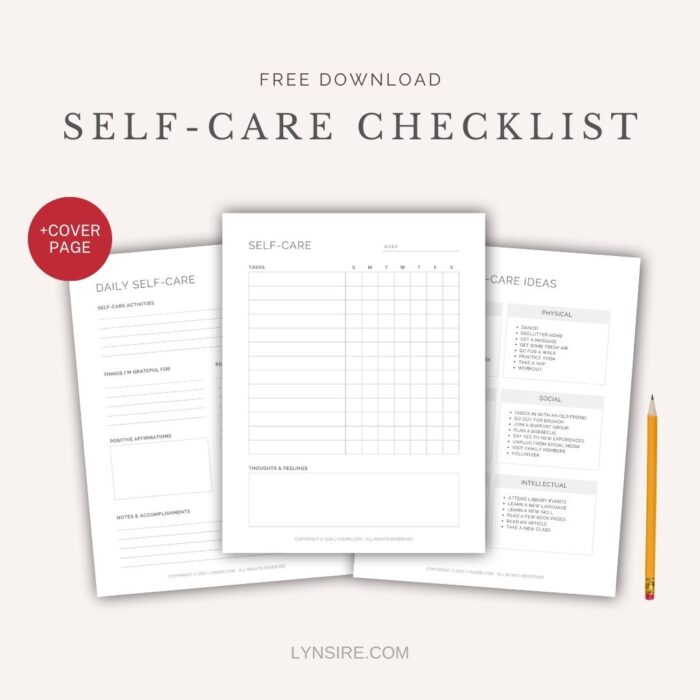Posted on September 4, 2023 | Last updated on February 27, 2024
Do you often find yourself feeling drained, lacking the energy to tackle your daily tasks with enthusiasm? If so, you’re not alone. Today we are sharing with you 11 tips to relieve stress quickly.
Fatigue and low energy levels have become all too common in our fast-paced lives. The good news is that by identifying the culprits zapping your energy and implementing simple lifestyle changes, you can regain your vitality and zest for life.
So, come along as we explore seven factors that might be killing your energy levels and discover practical ways to address them.
How to Relieve Stress Quickly
1. Poor Sleep Habits
The foundation of your energy levels lies in your sleep quality. Consistently getting inadequate or poor-quality sleep can leave you feeling sluggish and unfocused. Create a bedtime routine that promotes relaxation, such as reading, gentle stretches, or practicing mindfulness meditation. Ensure your sleep environment is conducive to rest by keeping it cool, dark, and quiet.

Image by Freepik
2. Unbalanced Diet
Eating an unbalanced diet high in processed foods and sugars can lead to energy crashes and mood swings. Opt for a diet rich in whole foods, including fruits, vegetables, whole grains, and healthy fats. Going vegan may also help lower your blood sugar levels and lose excess weight, which negatively impacts your overall health. You also want to steer clear of excessive caffeine and sugary snacks, which can cause energy spikes followed by crashes.
3. Dehydration
Even mild dehydration can lead to fatigue and a dip in energy levels. Make sure you’re drinking enough water throughout the day. Water promotes metabolism at the cellular level by allowing stored glucose to be broken down into energy when needed. Keep a water bottle with you, and aim to consume around eight glasses (about 2 liters) of water daily.
4. Lack of Physical Activity
Ironically, skipping physical activity can leave you feeling more tired. Regular exercise boosts circulation, oxygenates your cells, and releases feel-good endorphins. Engage in activities you enjoy, whether it’s brisk walking, yoga, dancing, or hitting the gym.

Image by yanalya on Freepik
5. Hormonal Imbalances
Hormones play a significant role in regulating your energy levels. One hormone that particularly impacts energy and vitality is testosterone. Low testosterone levels can result in fatigue, reduced motivation, and even mood disturbances. And that’s why the benefits of modern testosterone replacement therapy are hard to ignore. Testosterone replacement therapy (TRT) is a modern medical intervention that supplements your body with additional testosterone to restore balance. By replenishing your low testosterone levels, you can regain energy, increase motivation, and even regulate your mood. Although testosterone levels naturally decline with age, imbalances can sometimes occur earlier. Consult a qualified healthcare provider to discuss whether TRT is a suitable option for you.
6. Stress Overload
Chronic stress can drain your energy and contribute to burnout. What’s more, chronic stress may even cause your testosterone levels to deplete over time. Practice stress-reduction techniques like deep breathing, progressive muscle relaxation, or engaging in hobbies you love. Remember, managing stress is a key component of maintaining optimal energy levels.
7. Underlying Health Issues
Certain medical conditions, such as thyroid disorders, anemia, and vitamin deficiencies, can sap your energy. If you’ve addressed lifestyle factors and still feel fatigued, it’s best to consult a healthcare professional to rule out any underlying health issues that may require attention.
8. Age-Related Changes
As we age, our bodies undergo various changes that can influence our energy levels. As already mentioned, testosterone and other hormones may decline. Metabolism also naturally slows down, and muscle mass may decrease in addition to the hormonal shift. Embracing a well-rounded fitness routine that includes cardiovascular exercise and strength training can help counteract age-related changes and support energy levels.
9. Sedentary Lifestyle
Spending extended periods sitting at a desk or in front of a screen can contribute to fatigue. Regular movement throughout the day, such as standing up, stretching, or taking short walks, can prevent energy slumps and promote circulation. Avoid a sedentary lifestyle at all costs.
10. Overloading on Caffeine
While a moderate amount of caffeine can provide a temporary energy boost, excessive consumption can lead to crashes and disrupt your sleep, and sleep deprivation may crash your energy levels. Monitor your caffeine intake and consider switching to herbal teas or water for hydration.

Image by topntp26 on Freepik
11. Lack of Sunlight Exposure
Sunlight helps regulate your body’s internal clock and mood. Lack of sunlight exposure, particularly during darker months, can lead to feelings of fatigue and even seasonal affective disorder. Spend time outdoors daily, and consider light therapy if needed.
Relieve Stress Quickly – In Summary
If any of the above points resonate with you, you already know where the problem lies and what to do. Incorporating changes in these areas can significantly improve your energy levels and overall well-being. Also, if you suspect that hormonal imbalances are contributing to your fatigue, consider consulting a healthcare professional to explore options that can help restore your vitality safely.
Guest Post














No Comments